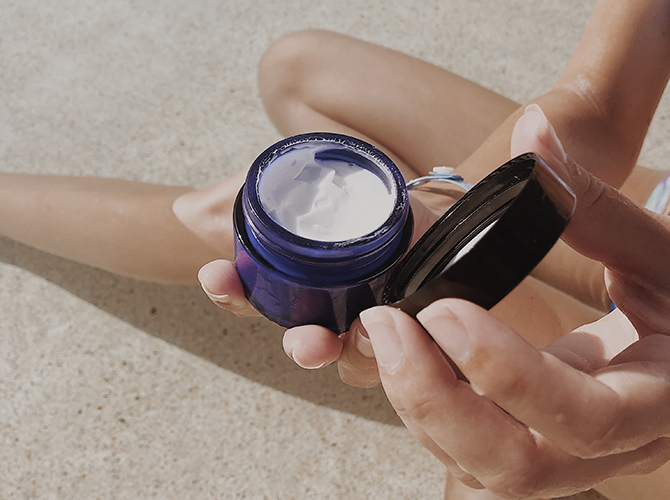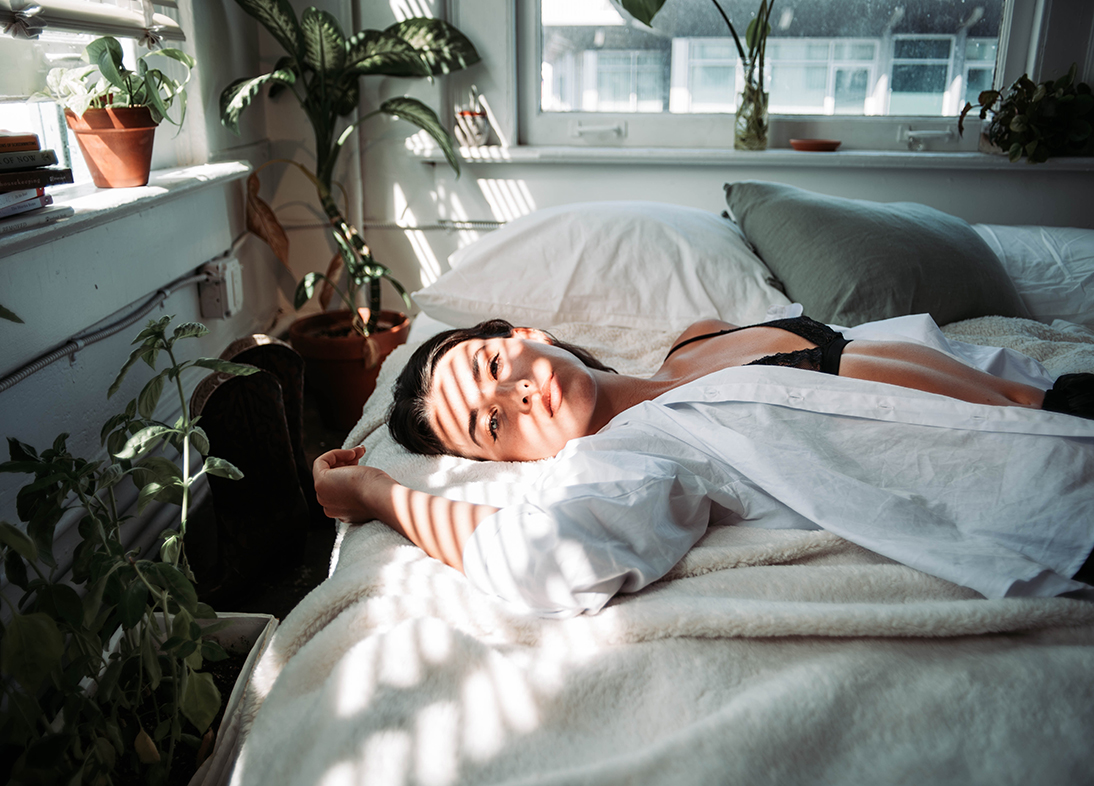How Singapore's weather is aggravating your eczema
No scratching
- 05.10.2021
- By BRANDON ALEXIUS CHIA
RECOMMENDED
Those of us blessed with good skin often take it for granted with the lack of a proper skincare routine. However, there are some who have no choice but to live with constant itching, peeling, and inflamed skin despite trying every topical available. Yes, we are talking about atopic dermatitis — better known as eczema, for those unaware. The worst part? Flare-ups can happen at any time due to all sorts of triggers.
Legal Knowledge Engineer Naomi Lim has been living with eczema since her childhood, but things took a turn for the worst in 2019 when a sudden flare-up – dubbed as the “monster” – developed. “I think it was the worst on my forearms, my hands, and my thighs. Yeah, that felt unusual to me because by the time it reaches those points, it’s already flared and infectious but this time around, my flexures were fine,” said the 32-year-old.

At that point, Naomi had no idea what could have caused the inflammation; a fact worsened by the symptoms that didn’t suggest a typical flare-up. She felt itching in places she’s never felt before, and the scratching caused more open wounds. Naomi’s general practitioner who had been treating her eczema for a while felt like there was nothing left that she could do to treat Naomi’s worsening condition and referred her to a specialist: Dr Mark Tang.
Dr Tang has over 20 years of experience as a dermatologist and formerly served as the Head of the Eczema and Wounds clinic at the National Skin Centre. Based on his memory of their first consultation, Dr Tang described her skin as dry, red, inflamed while the open wounds were weeping and oozing, which is a sign of a bacterial infection.

When asked about the potential causes, he listed a handful of possible triggers: “Naomi’s flare-ups were primarily caused by high levels of stress, exposure to dust, heat, and sweat. The constant itch also resulted in a lot of scratching, which further drives the vicious cycle of inflammation.”
Naomi pointed out that even the erratic weather that we’ve been facing in Singapore has a negative effect on her skin. While the cool storms and winds are soothing, the sudden shift towards high-tropical temperatures causes her body to go into “shock”.
“Hot weather ties in with the humidity. When it’s humid for a long period of time, I end up perspiring a lot and I can feel that my skin doesn’t like that so much. In combination with not enough sleep, that’s a sure-fire way for a flare-up,” said Naomi, who has dealt with her fair share of sleepless nights going over cases as a practicing lawyer before transitioning to the legal tech industry.

According to a study on atopic dermatitis triggers mentioned by Dr Tang, 67 percent of subjects cited the hot weather as the main trigger. Dr Tang explains how heat and sweat contribute to inflammation: “Some patients may actually be allergic to protein components in sweat. So, contact with sweat can trigger an immune response that causes skin inflammation. Hot weather or heat itself can directly trigger the inflammation too. Low humidity can worsen the dryness of the skin by increasing water loss from the skin.”
Thankfully for Naomi, her current job allows her to remain in an air-conditioned space for most of the day, which enables her to avoid sweating. Also, Naomi has been undergoing a new form of treatment – biologic therapy – since the “monster”, which has been speeding up the recovery process of the flare-ups before they become unbearably itchy.
Now, how does this drug work? Think about it as a tool that makes the skin cells forget to flare up in the presence of triggers. “The medication specifically targets the Type 2 inflammatory pathway, which is the main key driver of atopic dermatitis and “hits where it matters most”,” said Dr Tang on the injectable. He continued: “Large clinical trials and real-world data have shown that biologics can significantly improve eczema severity in up to 60-70 percent of patients. This has transformed and improved the quality of life for many patients with moderate to severe atopic dermatitis, such as Naomi.”
While these results are hopeful, the price tag is pretty steep for a monthly dosage. Naomi has been taking the same drug for almost two years now, but consistency is key when managing the condition and she will be continuing with the treatment for the time being to reap the long-term benefits.
Of course, there are some home remedies that could alleviate eczema. Here is a list provided by Dr Tang:
- Use a gentle soap-free cleanser all the time
- Minimise unnecessary hand washing. Dry your hands gently. Take special care between the fingers where the skin is more prone to dryness and cracking.
- Use an emollient or moisturiser regularly, especially after each hand washing.
- Pay attention to the fingers, nail bed, and nail folds as well.
- Keep a comfortable ambient temperature
- Keep a dust-free environment – reduce carpets, soft toys, etc.

Naomi’s personal favourite would be dermatologist-approved menthol creams that provide relief to the inflamed areas on the skin, which also stop the user from wanting to scratch themselves silly. Both Naomi and Dr Tang cautioned that not all remedies work because atopic dermatitis afflictions vary on the individual. “Actually, I really hesitate to give advice because I have a friend who has sensitive skin and allergies as well. We found that what works for her, doesn’t really work for me and what works for me, doesn’t really work for her. Sometimes it actually can be a little bit mentally exhausting when we have someone who tells you: ‘Hey, try this it will work’ or whatever,” said Naomi.
Eczema is a chronic disease that plagues so many people, hindering their daily lives even with the simplest things such as picking the right clothes to wear that hide the red patches of skin without causing further irritation. Regardless, finding the best treatment to identify the triggers will be crucial until a real cure comes around but with biologics, the end might be in sight.
ADVERTISEMENT. CONTINUE READING BELOW




